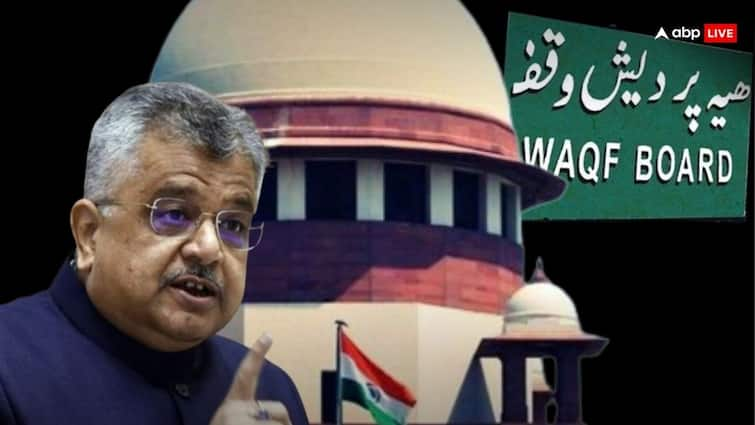In the petitions filed against the Waqf Amendment Act, 2025, the law has been described as a violation of Article 25 of the Constitution. Article 25 gives the right to guarantee the freedom of religion. The Center has given a strong reply to this plea of the petitioners. On behalf of the Center, Solicitor General Tushar Mehta said in the Supreme Court that Hindu code bill was brought and the rights of Hindus, Christians, Sikhs and Buddhist community were taken away, then no one said why Muslims were released.
A bench of Chief Justice Bhushan Ramakrishna Gawai and Justice Augustine George Christ reserved the verdict on Thursday (May 22, 2025) after three days of hearing. In the first day’s hearing, the petitioners made their arguments, while on May 21 and 22, the lawyers appearing for the Center and other states presented their stand in defense of the law.
On behalf of the Center, SG Tushar Mehta said that the new Waqf law is not contrary to Article 25 of the Constitution. He mentioned the Hindu Code Bill, which was brought to codes the rights of Hindus. He said, ‘When the Hindu Code Bill was introduced in the year 1956, their personal law rights were taken away from Hindus, Christians, Sikhs, Buddhists and Jainism. Then no one said why Muslims were released and not others?
The purpose of the Hindu Code Bill was to create a codes and modern Hindu personal laws in a general civil code. This included women rights in property, equal divorce rights and other provisions on subjects like marriage, divorce, succession and adoption.
SG Tushar Mehta gave the example of the Tamil Nadu Endowment Act on the issue of the inclusion of non-Muslims in the Waqf Board, which allows the removal of the monastery on violation of rules. He said that and we are arguing here that Articles 25 and 26 will be violated by the inclusion of non-Muslims.
Tushar Mehta, stating the difference between Hindu settlement and waqf, said that Hindu settlement is only religious work. They do religious work, but the Waqf also includes secular institutions like schools, madrasa, orphanages and dharamshalas. Referring to the Bombay Public Trust Act, he said that it controls the temples of Maharashtra and there is a arrangement that the chairman can be from any religion, whereas it is not in Waqf.
SG Tushar Mehta said that Waqf consists of two officers, one Sajjadanshin, who is a spiritual head and sees the functioning related to religion. The second is, Mutavalli, who is an administrator or manager. He said that Sajjadanshin is not a subject in the Waqf Amendment Act, because this law has nothing to do with spiritual or religious functioning.
After the approval of President Draupadi Murmu on April 5, 2025, the Waqf Amendment Act came into force in the country, but many petitioners reached the Supreme Court demanding an interim ban on it. In the first hearing on 16 April, the bench of former Chief Justice Sanjeev Khanna heard 72 petitions and banned the new appointment in the board till the next hearing. At the same time, the status quo was also asked to maintain the status quo on the declared property declared.
Justice Sanjeev Khanna had transferred the case to the bench of the new CJI BR Gawai before his retirement. From 20 May to 22 May, the bench of CJI Gawai heard the Waqf law case for three days.
Also read:-
Shri Banke Bihari Temple Corridor of Rs 500 crore, who is forming UP government, reached the Supreme Court to protest, Devendra Nath Goswami, said to CJI Gawai- I am a descendant …

